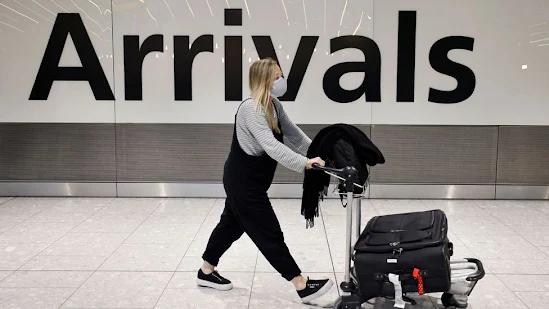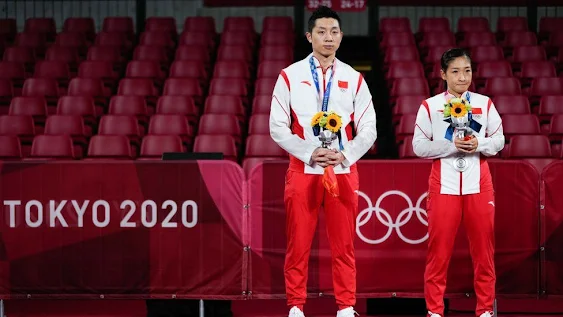A proposal to create an "amber watch-list" of countries at risk of moving to red in the travel traffic light system has been abandoned, a government source has told the BBC.
It comes after Prime Minister Boris Johnson said he wanted a "simple" and "balanced approach" to pandemic travel.
Government sources said no new categories would now be added.
Tory MPs and travel industry figures earlier warned a complex system risked putting people off from travelling.
The government had been considering the idea of a new level in the government's traffic light system for overseas travel, ahead of the next review this week.
It would have warned people when a destination was at risk of a sudden shift from amber to red - meaning that travel would be banned for everyone except UK nationals and residents, who would be required to quarantine in a hotel on their return.
PM defends approach to international travel
First people arrive in UK after travel rules eased
As opposition to the proposal gathered, Mr Johnson said he wanted to prevent new coronavirus variants entering the UK, though he recognised the desire to go abroad.
"We also have to recognise that people want, badly, to go on their summer holidays, we need to get the travel industry moving again, we need to get our city centres open again and so we want an approach that is as simple as we can possibly make it," he said.
The prime minster said the UK's economy and society were about "the most open in Europe" but he said caution was still needed.
The travel industry reacted with relief at the news that the watch-list would not go ahead.
Tim Alderslade, chief executive of the air travel industry body Airlines UK, said: "This is a victory for common sense. The PM has hit the nail on the head - people want a clear and consistent travel system that they can understand and that is workable."
He urged the government to go further and include more countries on the green list, exempting them from quarantine requirements.
Labour said scrapping the watch-list idea showed the Tories were "in total chaos" over their pandemic borders policy.
Excerpt from BBC News Homes......











